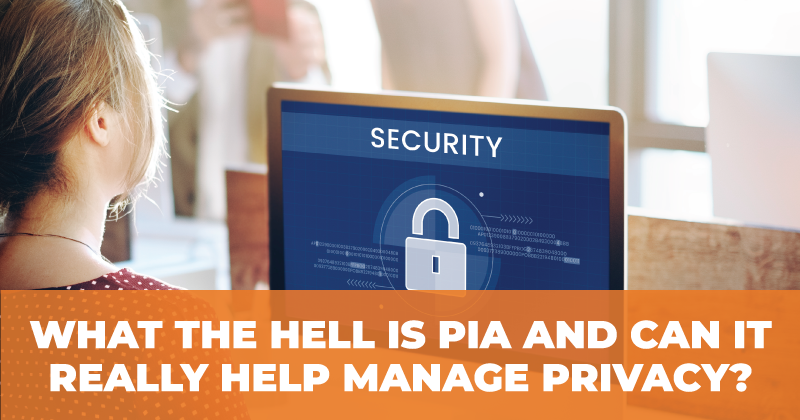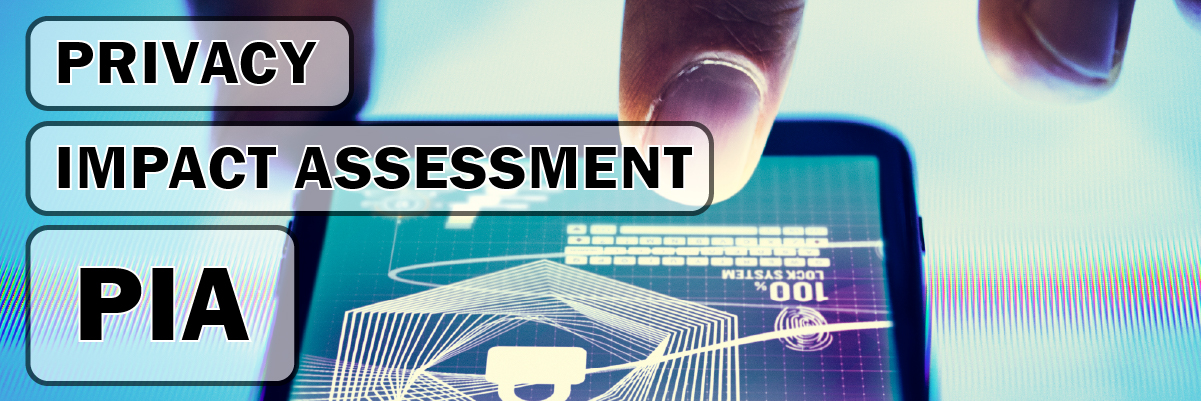Privacy Impact Assessment (PIA)
 Introduction
Introduction
A Privacy Impact Assessment, or PIA, determines whether or not a user’s privacy or personal information is protected. Privacy for IT systems should be addressed in addition to financial loss. Some federal agencies have IT systems and databases that store sensitive citizen data. The Privacy Act requires these agencies to adopt adequate technical, administrative, and physical safeguards to defend against cyber intrusions. The E-Government Act requires the Privacy Impact Assessment for stored information of 2002. It’s a way of evaluating the privacy of information systems and databases that are easy to use. Let’s look at the Privacy Impact Assessment (PIA).
What is Privacy Impact Assessment (PIA)
Privacy is a fit, basic human right essential for protecting human dignity. It helps people make boundaries to restrict who can access data, information, places, things, and communications. Privacy is also referred to as the right to be left alone and not disclose or publicize one’s personal information. In Constitutional law, privacy is referred to as the right of people to make decisions concerning intimate matters. However, under the Common Law, it is about people’s right to lead their lives in a way secluded reasonably from the public scrutiny that either comes from a scrutineer eavesdropping ears or a neighbor’s prying eyes. [1][2]
Privacy Risk Assessment provides an early warning to detect privacy issues, avoid costly mistakes in privacy compliance, and increase the information available to make informed decisions. Moreover, Federal agencies are responsible for performing privacy impact assessments for government systems and programs collecting personal data under the E-Government Act of 2002. Federal agency’s CIOs ensure that the PIAs are completed and reviewed for pertinent IT systems.
The US passed a legal reform in 1970, known as the Privacy Act of 1974. It helps to make new expectations of how the federal government collects and manages information. The Privacy Act strengthened over time, and other laws with privacy concerns were added. Several best practices are established for comprehensive federal privacy programs. Leadership is essential for the success of an organization’s privacy. The selection of senior officers with privacy expertise and direct support from the organization’s head is necessary.
 The responsibilities of SAOP/CPO include evaluating advanced technologies, online activities, programs, contracts, legislation, and regulations for potential privacy impacts. The formation of Privacy risk management and compliance documentation is one of the best practices recommended for ensuring the privacy of information stored by federal organizations’ IT systems. The SAOP/CPO must make and implement tools and techniques for evaluating the privacy impacts of all systems and programs. Moreover, robust security and privacy programs are vital for protecting Personally Identifiable Information (PII) used, collected, retained, shared, or disclosed by the organization. Federal organizations must implement privacy and security risk mitigation in the initial phases of the project. [3]
The responsibilities of SAOP/CPO include evaluating advanced technologies, online activities, programs, contracts, legislation, and regulations for potential privacy impacts. The formation of Privacy risk management and compliance documentation is one of the best practices recommended for ensuring the privacy of information stored by federal organizations’ IT systems. The SAOP/CPO must make and implement tools and techniques for evaluating the privacy impacts of all systems and programs. Moreover, robust security and privacy programs are vital for protecting Personally Identifiable Information (PII) used, collected, retained, shared, or disclosed by the organization. Federal organizations must implement privacy and security risk mitigation in the initial phases of the project. [3]
E-Government Act Section 208 helps government agencies to put in place enough protection for the privacy of PII. It requires organizations to perform a Privacy Impact Assessment (PIA) for IT systems to collect, maintain, or disseminate information. Moreover, the PIA procedure requires federal agencies to review the collected data, how they can use it, and develop new IT systems for handling PII collection. Implementing a PIA is necessary because it lets you ask individuals different questions and discuss best practices to implement security and privacy. A Privacy Impact Assessment is a recommended action by several authoritative sources. It satisfies legal requirements and helps agencies identify and manage risks and avoid unnecessary costs and loss of trust and reputation. [4][5]
Cities can develop a consistent method to identify, evaluate, and address privacy risks by implementing the Privacy Impact Assessment process. It helps to balance collecting data to provide services and protect citizens’ privacy, particularly while developing innovative smart city technologies. Conducting a Privacy Impact Assessment before leveraging technologies in a smart city will enhance accountability and transparency, mitigate potential harms regarding privacy, reduce legal risks, and improve compliance. Additionally, it lets people make more confident and consistent decisions about technology and data. [6]
Final Words
The elements discussed here provide a roadmap for the agencies to implement a robust privacy program. Privacy issues regarding the protection of personally identifiable information continue to be a factor for these agencies as advanced technologies and programs require usage, collection, storage, and destruction of PII keep on increasing. Therefore, the organizations must conduct PIA to identify and implement robust privacy measures effectively and quickly.
Privacy Impact Assessments are essential for protecting your data. By understanding the risks and impacts associated with data collection and use, you can mitigate potential harm to individuals and organizations. Protected Harbor is a company that specializes in privacy and cybersecurity. We can help you conduct a risk and impact assessment, and customize your infrastructure to fill any gaps. Contact us today for more information.






